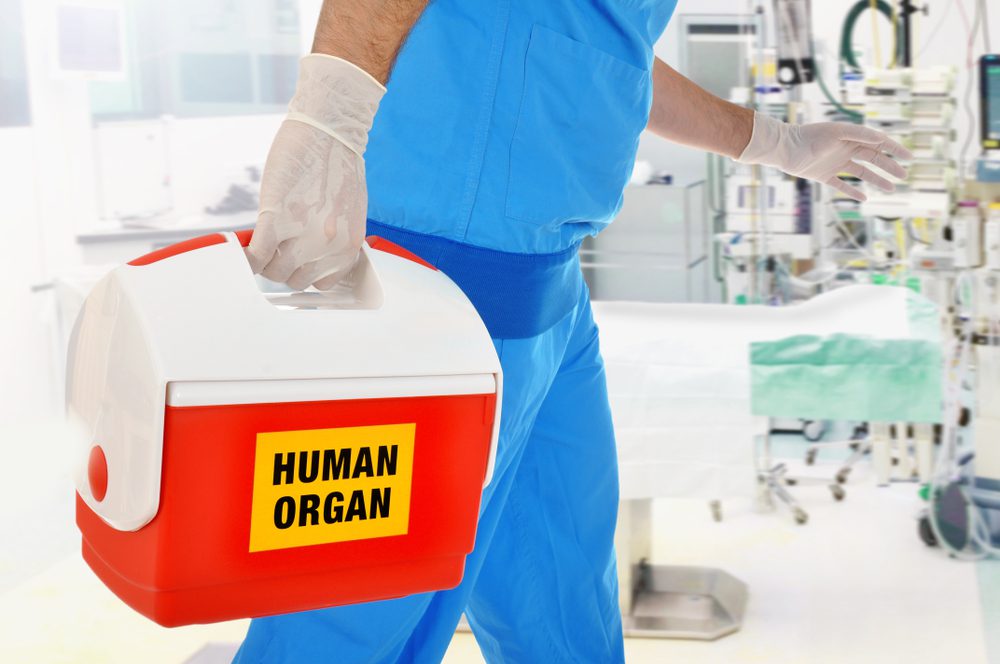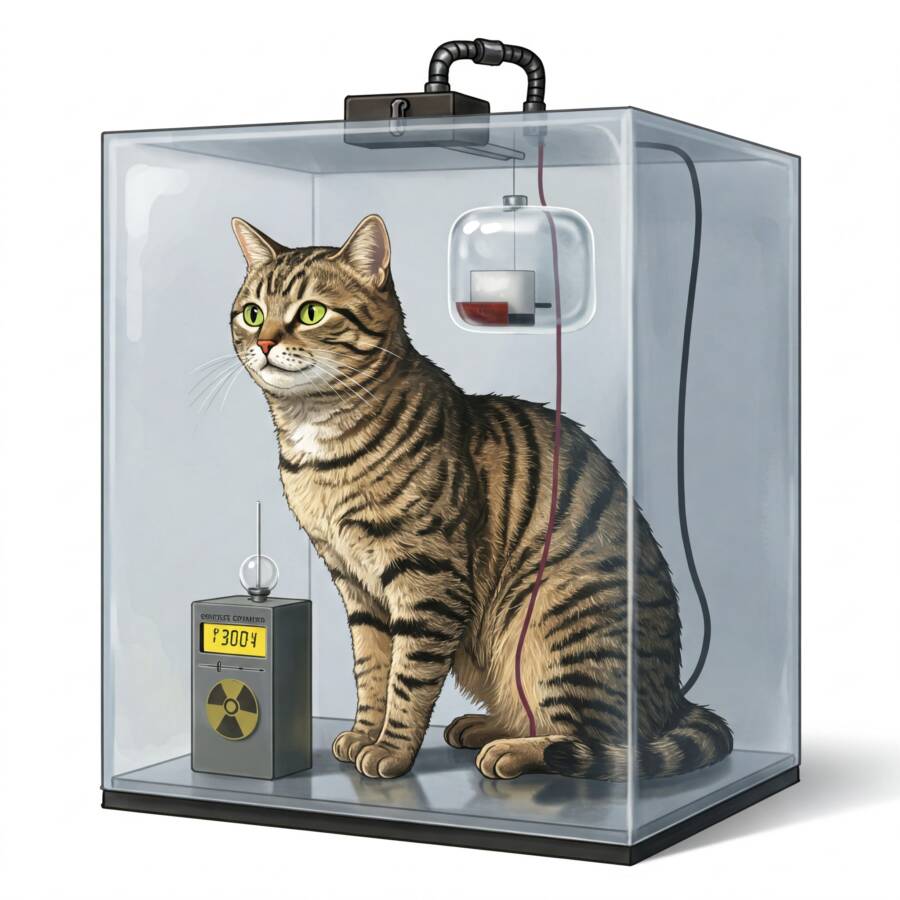Some of these organ transplant denials will completely enrage you!
In the delicate world of organ transplants, the prospect of getting denied looms ominously, raising a myriad of concerns and questions.
Science In The World has decided to investigate the intricate web of factors that can unexpectedly result in an organ transplant denial.
This exploration seeks to crack the case surrounding the process, shedding light on unforeseen reasons that might stand between you and the vital transplants you desperately require.
As we embark on this journey, we’ll navigate the intricacies of medical reviews, legal concerns, and other unexpected elements that could potentially block access to a second chance at life.
Join us in uncovering the 5 hidden facets of organ transplant denial, where the stakes are high, and the consequences can be fatal. Your understanding of this critical subject may be the key to overcoming the surprising hurdles on the path to a life-saving procedure.

Vaccination status can affect your organ transplant denial.
With the COVID-19 pandemic, we’ve seen more ups and downs than a Pogo stick. But one thing that slowly united us was the divide between vaccinated and unvaccinated.
Those who remain unvaccinated found that more and more of the world was becoming unwelcoming to them. Restaurants, movie theaters, and borders were closed to those who couldn’t prove their vaccine status.
And if you can’t eat indoors at a restaurant without being vaccinated, maybe it makes sense that you can’t get a lung transplant, either.
With over half of the world vaccinated, including about 64% of the US, hospitals have begun cracking down on the unvaccinated in some profound ways. Most noticeably, they denied a heart transplant to a 31-year-old, in part because he was unvaccinated.
The hospital in question considered lifestyle choices and vaccine status when determining who qualifies for the minimal number of organ transplants to ensure the best chance of survival for patients.
After a transplant, a patient’s immune system is practically zilch, so the vaccine is vital in the eyes of doctors. The bottom line is that if you refuse the Covid vaccine, it may result in organ transplant denial, should you ever need it.
Organ transplant denial can occur due to patients being too poor.
Imagine what it’s like to learn that your heart is failing and you need a transplant to survive. We know that there are over 100,000 people on a waiting list for organs, and only a fraction of that many get a new heart.
But assuming you’re in good health otherwise and you check all the right boxes to qualify, you must be near the top of the list. Now, think about what it’s like finding out the average cost of a heart transplant is roughly $1.3 million.
It seems weird to imply that you can be denied a life-saving procedure because you can’t afford it. But it turns out you can! A woman was denied a heart transplant because she couldn’t afford it. The hospital suggested she start a fundraiser to get together at least $10,000.
It’s routine to find that patients are required to prove they can pay in advance before any headway is made on a potential transplant. And although a heart is the most pricey, a kidney can cost you up to $400,000.
Also, let’s not forget about the anti-rejection drugs that cost about $2500 a month. And you need to take them for the rest of your life after you have this surgery.
Many patients start GoFundMe campaigns. But unfortunately, if the money doesn’t come in, it can lead to organ transplant denial.

Intellectual disabilities can be the cause of organ transplant denial.
One of the most significant moral questions the healthcare industry has faced regarding organ transplant denial is what should disqualify a person from receiving one. And no topic is more debated than disabilities based on intellect.
To some experts, it’s considered a waste of an organ to transplant it into someone with a disability like this. Unsurprisingly, the issue is spoken about in the media, and maybe even some petitions get signed. But as of yet, not a lot of progress has been made.
As late as 2021, there was some expectation that the issue of disability discrimination might come before Congress.
There’s still no official rule on the matter, and hospitals all around the US are still denying transplants to those with intellectual disabilities because they’re not able to care for themselves properly and, therefore, can’t get the most out of the organ.
Criminal history plays a role in organ transplant denial.
When a hospital evaluates the reasons for an individual’s organ transplant denial, they’ll inevitably settle on one, especially when it comes to denials. If a patient who needs a liver doesn’t stop drinking, that’s a reason to deny the transplant.
Likewise, a lung transplant patient will be dismissed if they won’t stop smoking. But occasionally, they’ll offer more esoteric reasons like “noncompliance.”
In organ transplant terms, that can mean a ton of things, like a suspicion that the patient won’t follow through on steps to ensure a healthy recovery after the surgery.
Back in 2013, a 15-year-old named Anthony Stokes was rejected for a transplant for “noncompliance,” and he was denied a life-saving heart transplant. The official reason was that the boy had a history of spending time in juvenile detention and poor grades.
So, the hospital refused to save his life because he had a criminal record at the age of 15. After the story got to the media, the hospital miraculously reviewed the circumstances and changed its mind.
The boy, who was given six months to live, was given the surgery and received a heart transplant. Sadly though, in a final, tragic twist, two years later, the boy died in a car accident after fleeing from police.

Regarding organ transplant denial, it’s pretty much a numbers game.
Roughly 40% of the vegetables and fruits that are produced on farms are thrown in the trash before consumers see them for no other reason than because they’re unattractive. Imperfect produce is considered unsellable. So it’s not even sold, a colossal waste.
No one wants a blemished apple, right? Well, as it turns out, this same attitude is applied to humans and organ transplant denials. By whatever metric one uses to decide such a label, inadequate organs began being turned away with a change to federal standards back in the 2000s.
This was essentially a matter of the bottom line. Imperfect organs make for higher-risk surgeries, just like a recipient who’s seriously ill. The more complex a surgery is, the less likely it is to be successful.
If too many unsuccessful surgeries occur, a hospital’s rankings go down, and they’ll receive less federal funding. So, to keep their ratings high, hospitals perform fewer transplants and only perform what they consider the “sure thing” surgeries.
This point pales in the face of what transplant surgeries are implied to do in the first place and the idea that the sickest people deserve the organs first.
After a report summarizing this was issued, standards were modified to allow hospitals to have more surgical fails without losing funding. But it’s still a metric by which funding is calculated.
For another interesting read about our bodies, check out this fascinating book on Amazon!
Science In The World hopes you found this article on organ transplant denial insightful. But don’t leave yet! Our site has much more to offer. For instance, we also highly recommend you read: 7 Body Parts Humans Don’t Actually Need…This Will Shock You!














